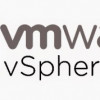1. Execution policy
– Restricted
– Unrestricted
– RemoteSigned
– AllSigned
– Bypass
> get-executionpolicy
Restricted
> set-executionpolicy unrestricted ; you must be as an Administrator.
Warning message ~
" The execution policy helps protect you from scripts that you do not trust. Changing the execution policy might expose you to the security risks described in the about_Execution_Policies help topic.
Do you want to change the execution policy?
Yes(y), No(n) and Suspend(S)
2. Running Script
*.ps1
The most common (default) way to run a script is by calling it:
PS C:\> & "C:\Belfry\My first Script.ps1"
If the path does not contain any spaces, then you can omit the quotes and the ‘&’ operator
PS C:\> C:\Belfry\Myscript.ps1
If the script is in the current directory, you must indicate this using .\ (or ./ will also work)
PS C:\> .\Myscript.ps1
3. Examples
ex) Define Date(Yesterday)
$yesterday = (Get-Date).AddDays(-1).ToString("yyy_mm_dd")
Write-host = $yesterday
ex) Find a specific folder
Dir ([Environment]::GetFolderPath("Cookies"))
ex) Find a specific folder and delete the folder (force)
Dir ([Environment]::GetFolderPath("Cookies")) | del -force
ex) Delete(force) cookies that is older than yesterday.
Dir ([Environment]::GetFolderPath("Cookies")) | where-object {$_.LastWriteDate -ge (Get-Date).addDays(-2) } | del -force
ex) Find a membership from object list
Dir $obj | get-member | more
ex) Kill a process
C:\> Get-Process xxxxx | Stop=Process
ex) Find a service that is currently running.
C:\> Get-Service | where { $_.status -eq ‘running’}
To check PowerShell version
PS C:\> $PSVersionTable



 The www.ipBalance.com runs by a volunteer group with IT professionals and experts at least over 25 years of experience developing and troubleshooting IT in general. ipBalance.com is a free online resource that offers IT tutorials, tools, product reviews, and other resources to help you and your need.
The www.ipBalance.com runs by a volunteer group with IT professionals and experts at least over 25 years of experience developing and troubleshooting IT in general. ipBalance.com is a free online resource that offers IT tutorials, tools, product reviews, and other resources to help you and your need.

![[Splunk] – Basic search fields and commands logo_splunk.png](https://ipbalance.com/wp-content/uploads/2009/06/logo_splunk-100x80.png)
